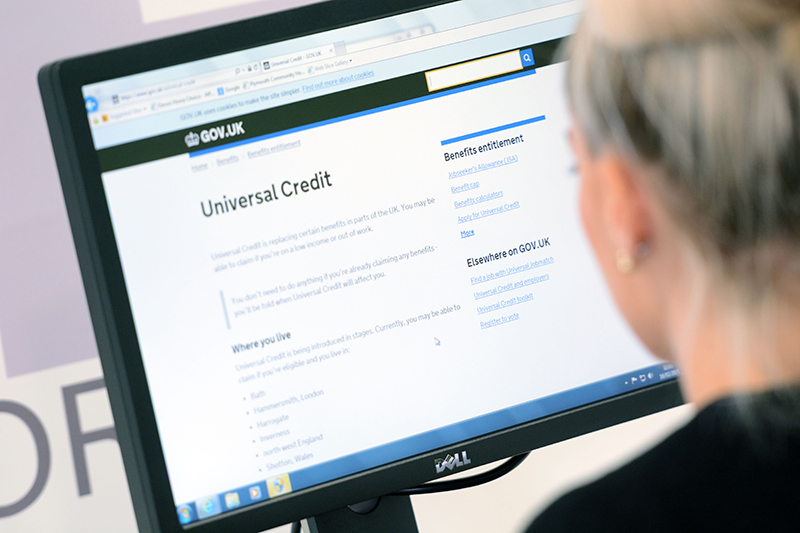Citizens Advice Scotland calls for ‘fundamental overhaul’ of Universal Credit
Citizens Advice Scotland (CAS) has today outlined six key reforms to Universal Credit to help struggling people who have turned to the charity for help.

In the week parliament returns after the Christmas recess, the charity has written to work and pensions secretary Thérèse Coffey and MPs to demand changes to the benefit.
The charity is outlining six key reforms to Universal Credit:
- Reduce the five-week wait for the first payment to no more than two weeks
- Introduce a grant payment for the assessment period to replace the current advance payment loans that are pushing people into debt
- End the digital by default application and claim maintenance process – ensure offline options are available
- Extend the existing Work Allowances to all Universal Credit recipients, not just those with children or a limiting health condition
- Increase the level of Work Allowances and reduce the Taper Rate to allow workers to keep more of what they earn
- Review the way that DWP estimate earnings for the self-employed to reflect actual earnings.
The work allowance means an eligible person can earn up to a certain amount of money a month without any financial impact on the amount they receive through Universal Credit. This amount is £287 for people if they also receive housing support or £503 if they do not.
Currently, only people who have children or have a limited capability to work because of a health condition or disability are eligible for a work allowance.
Single people or couples without dependents who do not have a limited capability to work are not eligible and currently lose 63 pence of their Universal Credit for every £1 they earn, from the very first pound.
This means a single person only has to earn around £505 after tax and National Insurance a month to be earning too much to be entitled to the Universal Credit standard allowance of £317.82.
CAS has previously highlighted that the five-week waiting period for the first payment is driving some claimants into debt, and can be exacerbated by the Advance Payment system of loans rather than grants during the five-week period.
The charity has also voiced concerns about the digital by default nature of Universal Credit, where people need to make the application and maintain their journal online.
Citizens Advice Scotland’s social justice spokesperson, Mhoraig Green, said: “We need to see significant changes to the way the Universal Credit is designed and delivered to ensure it supports the people who need it.
“There are issues with how long people have to wait for a first payment, people being pushed into further debt, and the digital by default system which locks out people who don’t have the skills or means to apply and maintain their claim online. We need fundamental reforms to the system to address these issues.
“The new government must also make ensure Universal Credit makes work pay.
“A rising tide of people are working, yet remain in poverty. Our social security system should be a way to lift people out of poverty by supporting people into work and supplementing low paid work. Universal Credit is supposed to provide this support, but our evidence shows that in reality it penalises people who work.
“The upcoming budget must be used to increase existing work allowances as well as introducing a new work allowance for people not currently covered by the existing ones, so people can keep more of what they earn and have a chance of working their way out of poverty.”








